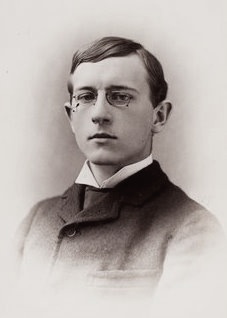A Quote by Thomas Merton
Love is perfect in proportion to it's freedom.
Quote Topics
Related Quotes
There's an idea I came across a few years ago that I love: My happiness grows in direct proportion to my acceptance and in inverse proportion to my expectations. That's the key for me. If I can accept the truth of 'This is what I'm facing - not what can I expect but what I am experiencing now' - then I have all this freedom to do other things.
Life's very difficult and full of surprises. At all events, I've got as far as that. To be humble and kind, to go straight ahead, to love people rather than pity them, to remember the submerged - well, one can't do all these things at once, worse luck, because they're so contradictory. It's then that proportion comes in - to live by proportion. Don't begin with proportion. Only prigs do that. Let proportion come in as a last resource, when the better things have failed.
The supposed great misery of our century is the lack of time; our sense of that, not a disinterested love of science, and certainly not wisdom, is why we devote such a huge proportion of the ingenuity and income of our societies to finding faster ways of doing things - as if the final aim of mankind was to grow closer not to a perfect humanity, but to a perfect lightning-flash.
Coupled with Usury, Unrestricted Competition destroys the small man for the profit of the great and in so doing produces that mass of economically unfree citizens whose very political freedom comes in question because it has no foundation in any economic freedom, that is, any useful proportion of property to support it. Political freedom without economic freedom is almost worthless, and it is because the modern proletariat has the one kind of freedom without the other that its rebellion is now threatening the very structure of the modern world.
The bottom line is that (a) people are never perfect, but love can be, (b) that is the one and only way that the mediocre and the vile can be transformed, and (c) doing that makes it that. Loving makes love. Loving makes itself. We waste time looking for the perfect lover instead of creating the perfect love. Wouldn't that be the way to make love stay?
The corruption of freedom is in proportion to the moral deterioration of the people. For a people who have lost their sense of self-respect have no need for freedom. And the income tax, by transferring the property of earners to the State, has disintegrated the moral fiber of Americans to such a degree that they do not even recognize the fact.
In proportion as the people are accustomed to manage their affairs by their own active intervention, instead of leaving them to the government, their desires will turn to repelling tyranny, rather than to tyrannizing: while in proportion as all ready initiative and direction resides in the government, and individuals habitually feel and act as under its perpetual tutelage, popular institutions develop in them not the desire of freedom, but an unmeasured appetite for place and power.



































